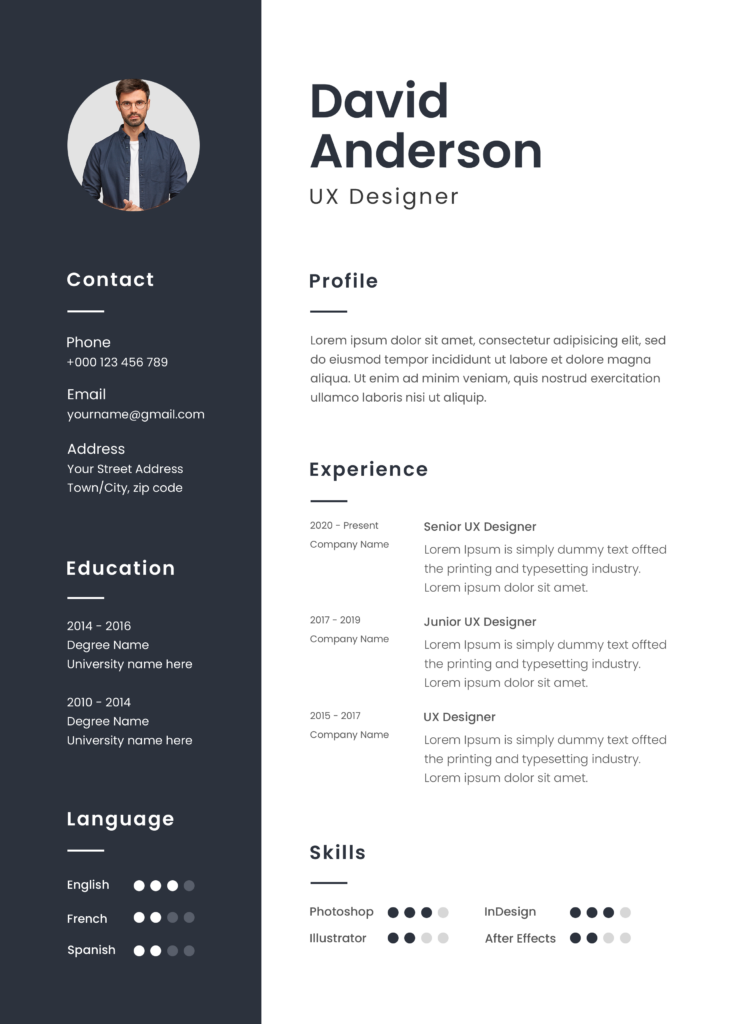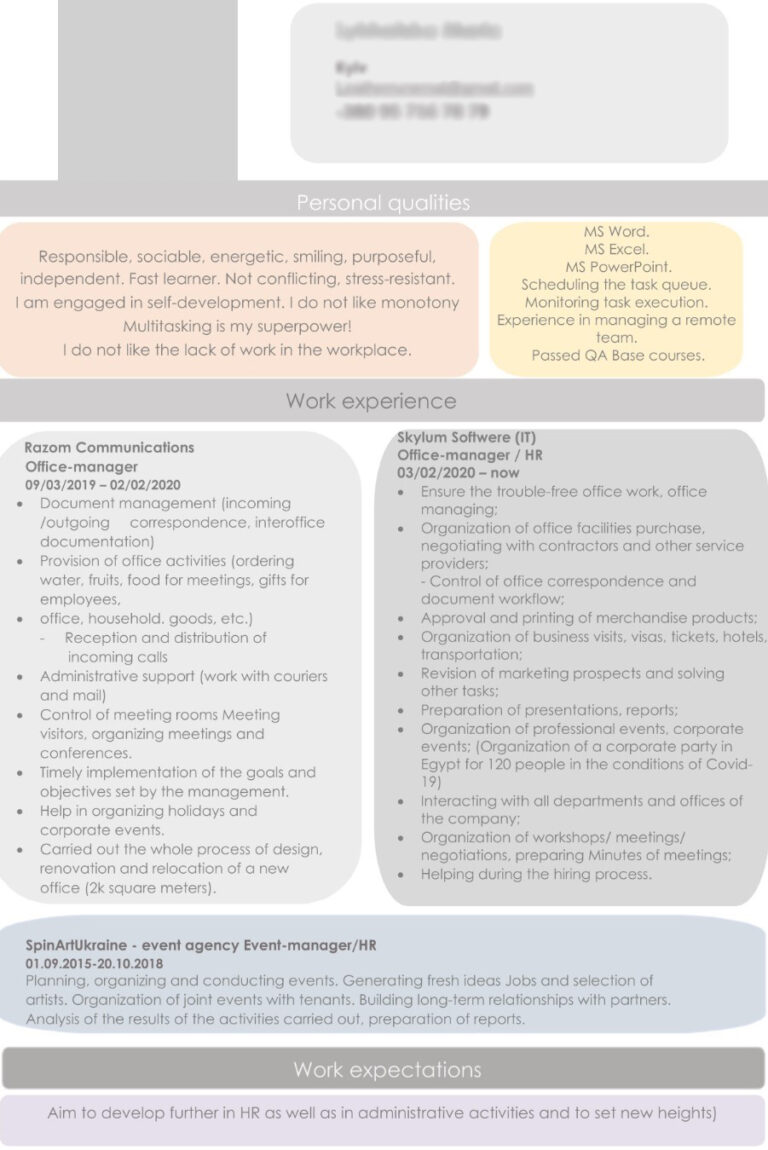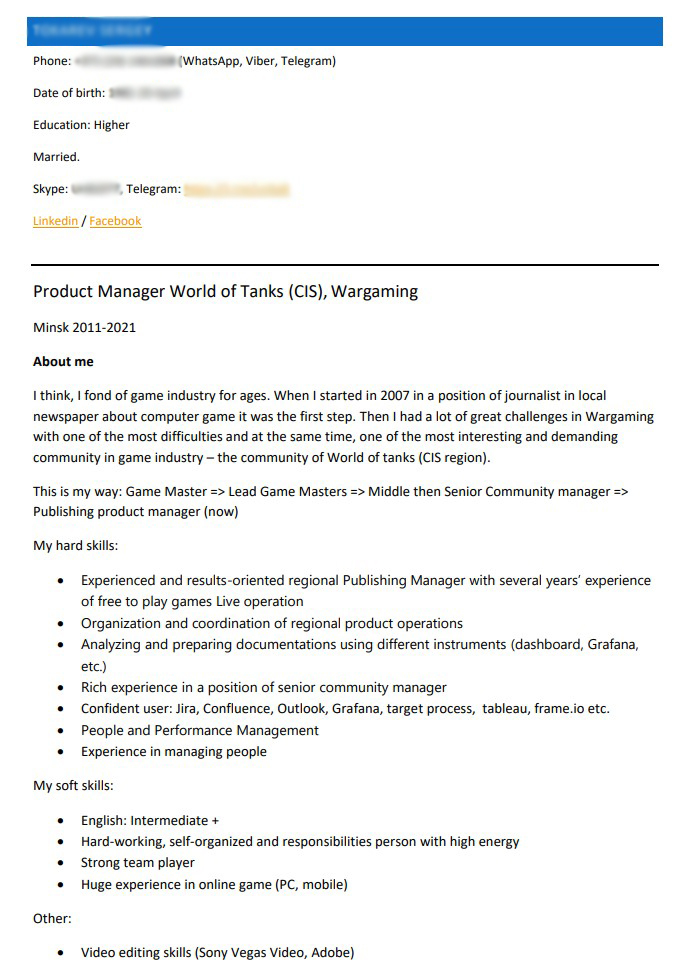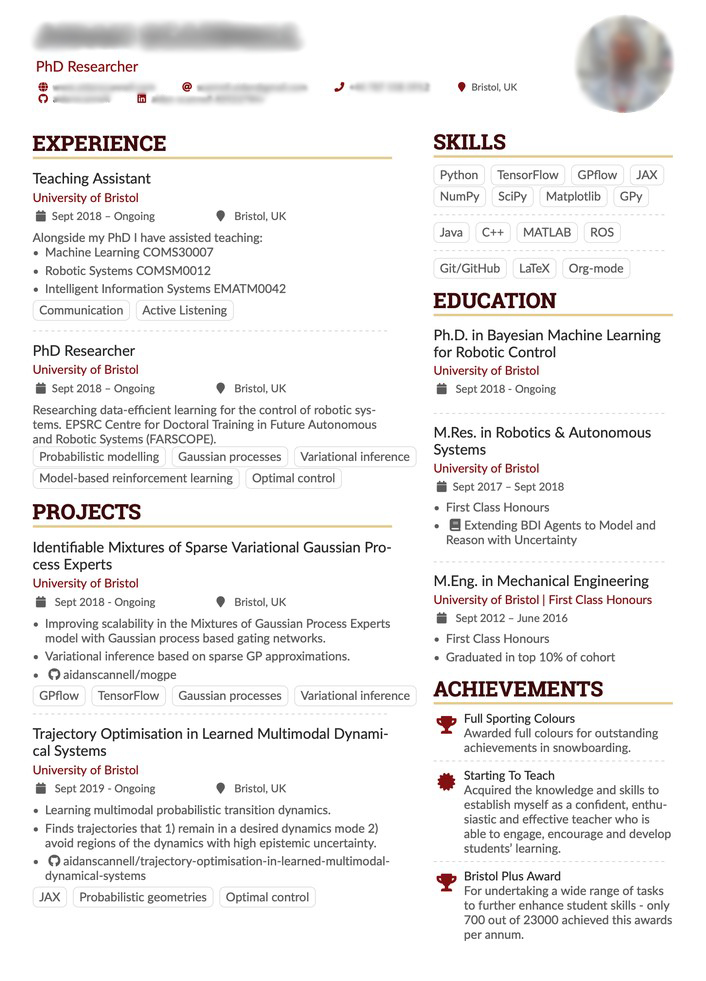2NITE / How to write a resume in English to get hired

Написать привычное нам резюме на русском, перевести его на английский и получать много предложений по работе – не получится. Вероятность того, что хорошая компания дочитает его до конца сильно стремится к нулю.
Что делать, чтобы этого не случилось, читайте в нашей статье!
The first step to a strong resume is understanding the difference between our resumes and foreign resumes.
Their difference is as follows:

Also, some people are concerned about what foreign and non-foreign employers pay attention to. And above all – on a well-written resume.
Keep in mind that each company (whether it is foreign or not) has its own selection criteria. Of course, they’ll look at what’s relevant to them right now. And the right skills can be searched for almost through a job search.
So focus on the content of your resume, which includes:
Your full name (first and last name)
Your job title (desired position)
Phone number
Personal email address (mail)
(Optionally) LinkedIn profile (link to LinkedIn is optional)
(Optionally) Professional website (website link is optional)
(Optionally) Other social media handles (links to other media are optional)
All of these points do not need to be added. Leave those directly related to the desired position.
Examples of contact information:
Here should be very brief information about yourself: what you can do, did etc. Remember that the pronouns “I, at me, mine, etc.” in English resumes are not welcome.
Sometimes this point is omitted, and this is normal.
Examples of business cards:
You can add more text in this section. The content will be individual, which depends on the job. Be sure to include the following:
-position (position) you have held;
-company name/freelance;
The following words may appear: Ltd./LLC/Corporation/ Inc.
-No more than six points of your responsibilities or achievements;
-statistics
(everyone loves numbers), which confirms your achievements (if such
is). But this information in text only, without any screenshots.
Examples of work experience descriptions:
Remember, past verbs (created) or the use of gerunds (learning) are important in this paragraph
Education – Education
Items that are needed here:
Vocabulary you may need:
Skills – Skills
Here we need to talk about hard and soft skills, because. they are all very important. You don’t have to make them up or just assign them to yourself. Point out what is actually there:
Hard-skills will be different for everyone. For example:
An even closer lead to your dream job is a comparison of good resumes and not so good ones. So you can see the difference and understand what to emphasize and what to remove.
Why:
1. a person puts his soft-skills first, not hard skills on his business card. And also the use of “I” in sentences.
2. Too many points in the description of the experience. Also confusion with verbs (then in the past, then the use of gerunds) and plus all the use of nouns.
3. skills are scattered all over the resume
4. no education specified
5. the design is for amateurs

Why:
1. the use of “I” in every sentence, where in addition there is a grammatical error.
2. No work experience or what this person has done
3. Basically, the design of the resume is rather dry and a little unclear.

Why:
1. clearly and to the point about your professional skills and accomplishments.
2. observance of all grammatical rules
3. well-structured. HR specialist can easily find the information he needs, for example, by using keywords in a search.

Why:
1. clearly and to the point about your professional skills and accomplishments.
2. observance of all grammatical rules
3. well-structured. HR specialist can easily find the information he needs, for example, by using keywords in a search.

There are no special secrets that no one knows. The main thing to remember: it should not be large (about 1 page), but informative. You shouldn’t make up things that aren’t there.
It often happens that companies give a resume template that a job seeker needs to fill out. It usually contains all of those items we talked about earlier. If you have your own prepared resume, it’s easy to fill out a form from the company.
Remember to double-check your resume for grammatical errors before you save it or send it. It may not seem important to you, but employers may well give a waiver because of them.
You can learn English to work for promising companies at our online English language school 2nite.
Good luck to you! Everything will definitely work out!